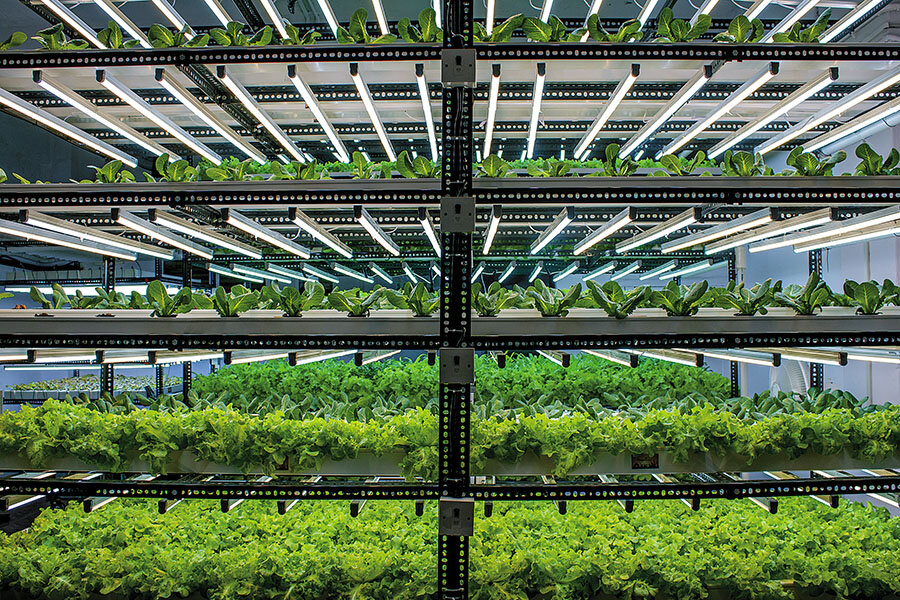Company insurance is intended to safeguard the financial assets of a business owner and is a crucial investment for a hydroponic farm.

This article will discuss the primary insurance coverage for hydroponic farms, general liability insurance, as well as additional policies that are appropriate for this industry.
Table of Contents
Hydroponic Farm General Liability Insurance
Every firm, regardless of sector, has risks that should be insured. General liability insurance is the most frequent and comprehensive form of coverage that company owners purchase.
General liability insurance covers the following risks:
Physical harm
Damage to property
Medical expenses
Legal defence and decision
Personal and commercial harm
While general liability insurance is not legally needed for companies, operating without it is exceedingly dangerous. If your company is sued, you might face costs in the hundreds of thousands of dollars (or more). The only way to avoid this sort of catastrophe from destroying your organisation is to have an adequate general liability insurance coverage in place to assist pay for these losses.
Common Situations That A Hydroponic Farm’s General Liability Insurance May Cover
Example 1: Your employee is giving a tour of your hydroponic facilities to guests when one of them tripped over a power cable and falls into a lighting fixture. Your general liability coverage will cover the expense of treating the visitor’s injuries, and if he or she files a lawsuit, the policy will pay your legal fees.
Example 2: A forklift is being used to put product boxes onto the rear of a customer’s vehicle. She loses control of the forklift, causing it to collide with the side of the customer’s vehicle. Your general liability coverage should cover the expense of fixing the truck’s damage.
Example 3: A competitor hydroponic farm sues your firm for defamation and slander. The expenses of engaging a legal defence will be covered by your general liability coverage. If you have to pay a settlement to the rival, your insurance will cover the expenses up to your policy limits.
Of course, this is not an entire list of risks covered by a general liability insurance policy, and certain situations may result in a specific peril not being covered. To minimise coverage gaps, it’s always better to speak with your agent about the terms of your policy.
General Liability Insurance Cost
The typical hydroponics farm in the United States pays $400-$1,500 per year for $1 million in general liability insurance.
The cost of your coverage will be determined by a number of variables. Among them are your:
Location
Deductible
Employees’ number
Per-occurrence restriction
The overall aggregate limit
You may be able to get general liability insurance at a lower cost if you buy it as part of a business owner’s policy (BOP) rather than as a separate policy. A business interruption policy (BOP) is a more complete option that covers numerous types of coverage, such as business interruption and property insurance.
Other Types of Coverage Required by Hydroponic Farms
While general liability insurance is the most crucial, there are various different types of coverage to be aware of. Other forms of insurance that all hydroponic farms should have are as follows:
Insurance for Workers’ Compensation
Employees are often required to run a hydroponic farm. If your firm has recruited one or more individuals, you are obliged by law to have workers’ compensation insurance. Your insurance coverage will assist in paying for any medical treatment necessary by employees who are injured on the job. The coverage will also assist in covering missed income for an employee who suffers a work-related accident.
Insurance for Commercial Property
In the case of a severe catastrophe, a business property insurance coverage will assist you in covering the expenses of repairing your hydroponic equipment. For example, if a fire damages your equipment, your business property coverage will cover the cost of replacement up to the policy limits.
Coverage Options for Some Hydroponic Farms
In addition to the insurance listed above, your hydroponic farm may need other forms of coverage based on particular characteristics of your operations. Some of them may not apply to you, so be sure to ask your agent whether policies are appropriate for your company.
Insurance for Commercial Vehicles
If you have any cars that are generally used for business, such as a delivery van for your goods, you must have commercial auto insurance. Your coverage will cover damage caused by corporate cars used by workers.
Umbrella Insurance for Businesses
When your general liability insurance coverage hits its maximum, a business umbrella insurance policy will step in. For instance, you may find your organisation in a legal position where your duty turns out to go above your insurance boundaries. When this occurs, your business umbrella coverage kicks in and protects you from having to pay charges that exceed your coverage limits out of pocket.
Additional Security Measures for Your Company
Although investing in company insurance is simple (and necessary), it should not be your first line of defence. Yes, insurance will reimburse your company for cash losses incurred as a result of an occurrence, but it is much preferable to avoid losses altogether.
With this in mind, here are a few steps you can take to better secure your company:
Make use of legally binding contracts and other business agreements. (We provide free templates for several of the most often used legal forms.)
To safeguard your personal assets, form a limited liability company (LLC) or a corporation. (To discover how to incorporate an LLC or company in your state, see our step-by-step tutorials.)
Keep your company licences up to date.
Streamline the internal procedures of your company. This will eliminate unneeded variables from routine activities and establish a secure, consistent environment in which to do business.
If your company is an LLC, you should check into LLC insurance.
